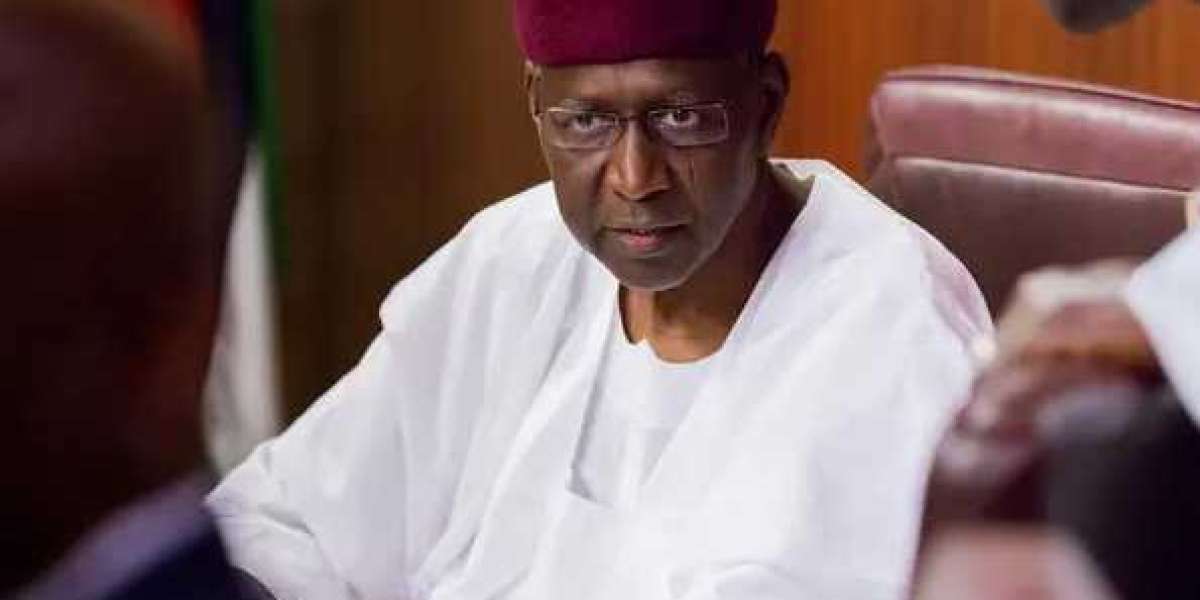Abba Kyari was a Nigerian lawyer and politician who served as the Chief of Staff to President Muhammadu Buhari from 2015 to 2020. He was widely regarded as one of the most influential and powerful figures in the Buhari administration, as well as a controversial and divisive figure in Nigerian politics. He died on 17 April 2020 from complications of COVID-19.
In this blog post, we will explore the life, career, achievements, and controversies of Abba Kyari, the power behind the throne.
Abba Kyari Early Life and Education
Abba Kyari was born on 23 September 1952 in Borno State, Nigeria, to a Shuwa Arab family. He attended St. Paul's College in Zaria, where he met Mamman Daura, a nephew and close confidant of Muhammadu Buhari. He also considered joining the Nigerian Army but was dissuaded by Daura and Ibrahim Tahir, a former minister of state.
He graduated with a bachelor's degree in sociology from the University of Warwick in 1980 and a law degree from the University of Cambridge in 1983. He was called to the Nigerian Bar in the same year. He later obtained a master's degree in law from the University of Cambridge in 1984. He also attended the International Institute for Management Development in Switzerland and the Harvard Business School's Program for Leadership Development.
Abba Kyari Career
Kyari started his career as a lawyer, working for the law firm of Fani-Kayode and Sowemimo for some time. He then joined the New Africa Holdings Limited, a media company, as an editor from 1988 to 1990. He also served as a commissioner for forestry and animal resources in Borno State in the early 1990s
He later ventured into the banking sector, becoming the secretary to the board of the African International Bank Limited, a subsidiary of the Bank of Credit and Commerce International, from 1990 to 1995. He then rose to become the executive director in charge of management services at the United Bank for Africa and later the chief executive officer. He also served on the boards of Unilever Nigeria and Exxon Mobil Nigeria.
Chief of Staff to the President
In August 2015, Kyari was appointed as the Chief of Staff to President Muhammadu Buhari, who had won the presidential election earlier that year. Kyari was seen as a loyal and trusted aide of Buhari, who had known him since the 1970s when Buhari was the governor of Borno State. Kyari was also a close associate of Mamman Daura, who was widely regarded as the leader of the "cabal", a group of influential and unelected advisers to the president.
As the Chief of Staff, Kyari was responsible for overseeing the affairs of the presidency, coordinating the activities of the ministers and other appointees, and liaising with the National Assembly, the judiciary, the security agencies, and the public. He was also the gatekeeper to the president, controlling access to him and influencing his decisions. He was often described as the de facto head of government, as he wielded enormous power and influence over the policies and actions of the administration.
Kyari was also involved in several diplomatic and economic missions, representing the president at various international and regional meetings and forums. He played a key role in negotiating the release of some of the Chibok girls kidnapped by Boko Haram in 2014, as well as securing a $2.5 billion loan from China for the construction of a railway line. He also led the Nigerian delegation to the signing of the African Continental Free Trade Area agreement in 2018.
Abba Kyari Achievements and Controversies
Kyari was credited with some achievements during his tenure as the Chief of Staff, such as:
- Improving the security situation in the country, especially in the North-East, where Boko Haram had been waging a violent insurgency for years. Kyari was instrumental in facilitating the collaboration and cooperation between the Nigerian military and the Multinational Joint Task Force, comprising troops from Nigeria, Chad, Niger, and Cameroon. He also supported the establishment of the North-East Development Commission, a federal agency tasked with the reconstruction and rehabilitation of the region.
- Enhancing the administration's anti-corruption campaign was one of the cardinal objectives of Buhari's agenda. Kyari was a vocal advocate of transparency and accountability in the public sector and supported the efforts of the Economic and Financial Crimes Commission, the Independent Corrupt Practices and Other Related Offences Commission, and the Code of Conduct Bureau in investigating and prosecuting cases of corruption and financial crimes. He also championed the implementation of the Treasury Single Account, a system that consolidated all government revenues and expenditures into one account to curb leakages and fraud.
- Promoting the diversification of the economy, which was heavily dependent on oil revenues. Kyari was a key player in the development and execution of the Economic Recovery and Growth Plan. This medium-term strategy aimed to stimulate growth, create jobs, and reduce poverty. He also supported the development of the non-oil sectors, such as agriculture, manufacturing, mining, and services, and encouraged foreign and local investments in these areas. He also advocated for the removal of fuel subsidies, which he argued were unsustainable and wasteful.
However, Kyari was also embroiled in several controversies and scandals during his tenure, such as:
- Clashing with some of the ministers and other appointees of the president, who accused him of undermining their authority and interfering in their portfolios. Some of the notable examples include his disagreements with the former Minister of State for Petroleum Resources, Ibe Kachikwu, over the appointments and contracts in the Nigerian National Petroleum Corporation; the former National Security Adviser, Babagana Monguno, over the coordination of the security agencies; and the former Head of Service, Winifred Oyo-Ita, over the reinstatement of a dismissed civil servant.
- Being accused of corruption and nepotism by some critics and opposition parties, who alleged that he was involved in various shady deals and contracts and that he favoured his relatives and cronies in the appointments and allocations of resources. Some of the allegations include his involvement in the award of a $25 million contract to a company linked to his nephew; his receipt of a N500 million bribe from MTN Nigeria to reduce the fine imposed on the telecom company by the Nigerian Communications Commission; and his ownership of several properties and assets in Nigeria and abroad, which were beyond his legitimate income.
- Contracting and dying from COVID-19, the disease caused by the novel coronavirus that had become a global pandemic in 2020. Kyari tested positive for the virus in March 2020 after returning from an official trip to Germany, where he had met with Siemens AG officials. This German company was contracted to upgrade the power infrastructure in Nigeria. He was initially treated at a private hospital in Abuja but was later transferred to a hospital in Lagos, where he died on 17 April 2020. He was buried the next day in Abuja amid controversy over the violation of the social distancing and lockdown measures that the government had imposed to contain the spread of the virus.
Conclusion
Abba Kyari was a prominent and powerful figure in the Nigerian political landscape who played a pivotal role in the Buhari administration. He was admired by some for his loyalty, competence, and vision and despised by others for his arrogance, secrecy, and manipulation.
He was a man of many contradictions who left behind a legacy of achievements and controversies. He was indeed the power behind the throne and one of the most influential and controversial chiefs of staff in Nigeria's history.





